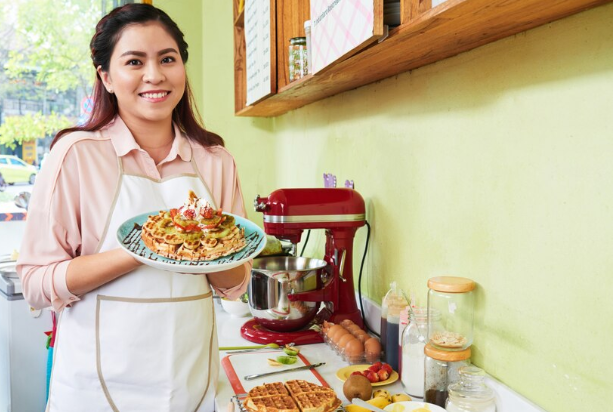We all eat, and like any industry that faces challenges, this is the edge of the food industry.
If you are an aspiring food entrepreneur with all the fresh ideas for running a restaurant, you’ve come to the right place. You should know that starting a food business is not just about cooking sumptuous meals with fancy garnishing. It takes more than just the skill of cooking.
If you’re still unfamiliar with the ins and outs of the food industry, this food entrepreneurship 101 is your practical guide. Make sure to stick until the end.
Table of Contents
What Is The Food Industry?
With the development of technology, the food and beverage sector is growing in innovative ways worldwide. Food industry leaders are either reversing the trend with a squeeze or customized food businesses that put the experience first rather than innovation, as evidenced by the continued success of fast-service restaurants.
What Are The Different Kinds Of Food Businesses?
Before choosing whatever type of food business to launch as a business venture, it is vital to consider all the available options.
When you see someone opening a food-related enterprise, the first thing that would come to mind is a restaurant. Still, there are numerous possibilities for food-related enterprises than a classic sit-down restaurant.
These are a few kinds of businesses you might consider having.
Restaurants
This can range from a basic shop to a great dining establishment serving seven-course dinners. Location is crucial for restaurants, and good service is essential. Before you start, thoroughly analyze the demographics of your target market and competitors.
Catering Services
Catering can be your niche if you’re searching for a career in the food industry that allows you to set your hours and decide how to do business.
You can decide to do this part-time or run a full-service catering business. You only need a viable business kitchen and a delivery vehicle; you won’t exactly need a shop.
Bars And Pubs
The bar and pub industry is ever-evolving. The gastro-pub is increasingly popular in several urban and suburban regions, even though the emphasis is frequently on drinking rather than eating.
Compared to a restaurant that just doesn’t serve, you could have to deal with a couple of additional rules and guidelines if you intend to sell alcohol. To get started, know about them and be ready to pay additional licensing fees.
Food Vans
You can operate a modest food business anywhere you travel, from a food van or truck. They used to be commonly parked in cities, providing workers with an alternate meal choice during a hectic lunchtime rush, with good beverages from the top glass bottle manufacturer.
Today, however, food trucks are a common sight at fairs and festivals. In fact, “food truck days” are sometimes arranged in busy downtown districts to bring these enterprises together for the mutual benefit of all parties.
Dessert Parlors & Bakeries
Few communities are incomplete without one exceptional bakery, whether a classic bakery, a trendy cupcake store, or a venue that doesn’t have a frontage and instead crafts wedding and baked goods. Others offer special perfume gift packaging along the pastries to give them a more romantic vibe.
A bakery might be a small business with only a few display cases for consumers to peruse products, or it can have seating so that people can enjoy desserts while out for a walk in the evening. There are countless alternatives.
Delivery
Delivery is more prevalent as people’s schedules get more and more hectic. It is a part of the food business that only has space to expand, whether you decide to provide a service of your product like a delivery pizza using high-quality disposable carry-out food containers or work with other companies to get food from one area to another.
What Skills Do You Need To Become A Food Entrepreneur?
Anyone who establishes their own company in the food sector is referred to as a food entrepreneur. It might be someone who develops the subsequent meals specialized diet, operates a food truck and starts their small food enterprise, or starts their catering service. By blending food, commerce, and social entrepreneurship, food entrepreneurs can tackle issues they observe in the food system.
If this is you, you might consider looking at these qualities and see if you’re a good fit or need more training and guidance to become a good food entrepreneur.
Learn the following abilities to increase your chances of success in the food business:
- Be knowledgeable in budgeting and financial reporting
- Business strategy
- Public speaking
- Leadership and management
- Culinary expertise
- Innovative resolution of issues
- Forming a team
Aside from these, you need to learn other management skills and always learn to upgrade as the food industry continues to grow and develop.
Conclusion
In starting your career as a food entrepreneur, passion can go a long way, but you must first be knowledgeable of the industry to adapt quickly and excel in this industry. The information presented above will give you a real sense of what it is like to have your own food business. Make sure to learn from it, so you’ll be on your way up to success.

